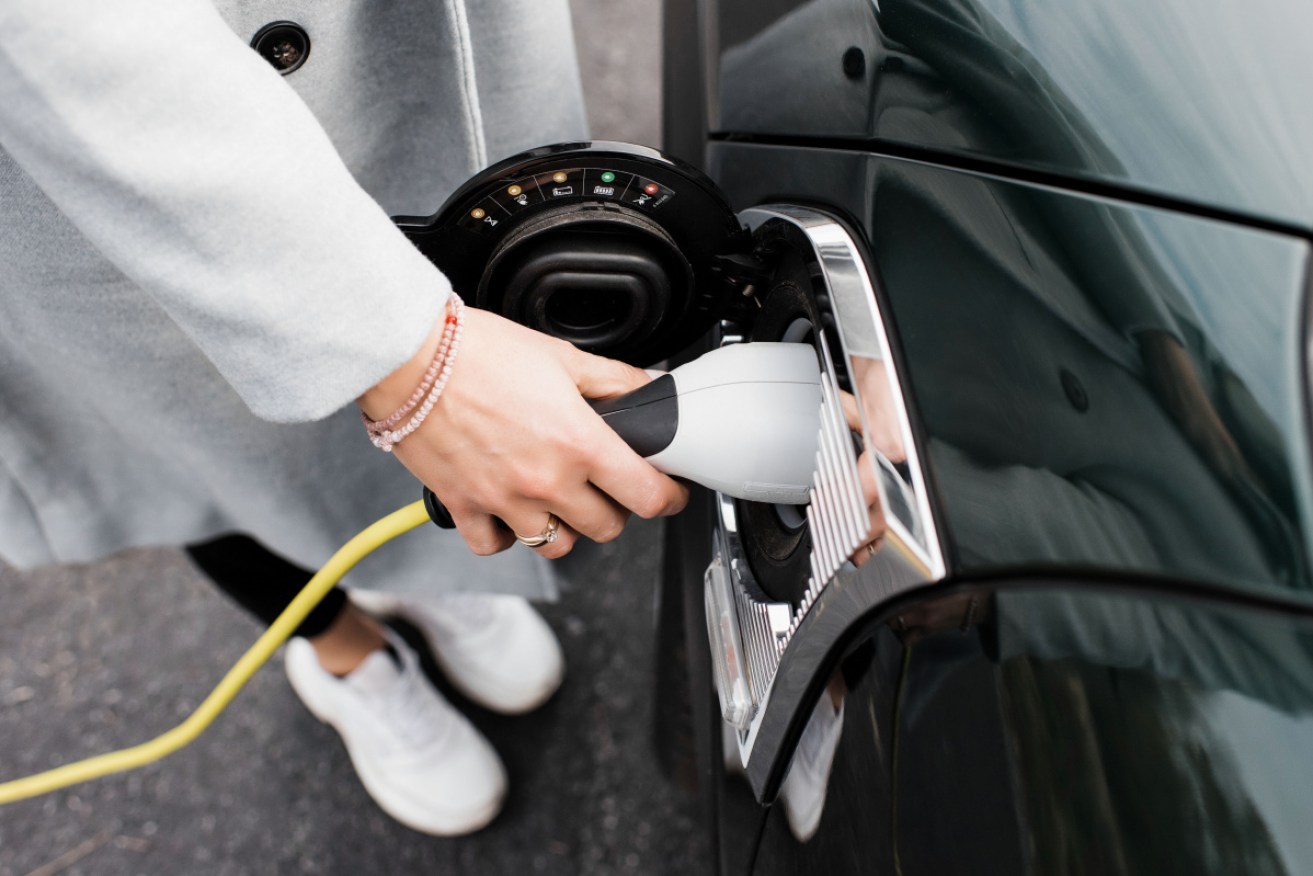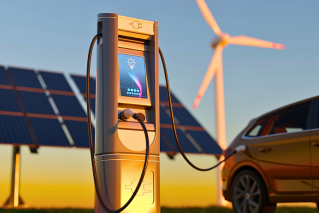Taxes on electric vehicles are running Australia’s bid to reach net-zero emissions off the road


People are less likely to buy an electric car because of new user taxes, according to a new poll. Photo: Getty
Australia’s ambition to reach net-zero emissions by 2050 are being blighted by special taxes and a lack of incentives to buy an electric car, climate experts have said.
The damning Intergovernmental Panel on Climate Change (IPPC) released on August 9 came as a stern warning to Australia to take immediate action.
But despite the report’s catastrophic findings, South Australia remains poised to join Victoria in implementing a road-user charge for electric vehicles – a tax that led an alliance of 25 car manufacturers and environmental groups to describe Victoria’s strategy as the “worst electric vehicle policy in the world”.
It comes after an Australian Institute survey in South Australia revealed a user tax would make 70 per cent of people there less likely to purchase an electric car, despite otherwise healthy demand.
More than 40 per cent considered going electric with their next vehicle purchase while 72 per cent supported the introduction of incentives.
“It shows there’s a lot of appetite for Australians to do more on climate action – certainly more than what’s on offer at the national level,” Australia Institute climate and energy program director Richie Merzian told The New Daily.
“What we’ve seen is strong support. Australians see a role for government in actually bringing down that sticker price.
“Seven out of 10 people want it, and seven out of 10 said it would disincentivize them to buy one if there was a tax rushed in.”

The Australia Institute says it’s clear road user charges will reduce EV uptake. Photo: Getty
Victoria’s new tax came into effect on July 1 and imposes a 2.5-cent charge for each kilometre travelled, putting the annual cost at $500 for a vehicle travelling 20,000 kilometres, while South Australia is slated to implement a similar tax next year.
The tax narrowly passed the Victorian parliament despite Hyundai, Volkswagen, Uber and the Electric Vehicle Council writing to MPs and urging them to vote against the plan.
When a user charge was first proposed in SA, Treasurer Rob Lucas said it would be based on a similar distance-travelled scheme, with motorists providing odometer readings to ensure all road users contributed fairly to the state’s road maintenance investment.
“The reality is, if you’re driving an electric vehicle then you’re not paying fuel excise at the pump and you’re contributing significantly less to the vital upkeep of our vast road network,” the Treasurer said.
But those opposed to the measure say the tax will only slow progress towards more environmentally-friendly motoring and are calling for incentives, such as subsidies or stamp duty waivers, to help reduce upfront EV costs.
In response to the claims of state treasurers, critics of the road-user charge also argue that money raised from fuel excise is funnelled into consolidated government revenue and not spent solely on road maintenance.
The Australia Institute urged the SA government to rethink introducing a road-user charge, noting the state’s potential to lead Australia’s climate response and the risk of missing out on affordable EVs if Australia failed to create an environment favourable to car manufacturers.
“For a state like South Australia, it is well suited to incentivising and driving hard on electric vehicles, and it will be such a disappointment to see them just go in reverse … it’s certainly not the best direction for climate action,” Mr Merzian said.
“It’s very clear what people want here. Electric vehicles save you money on fuel, maintenance, and if we can attract the most affordable electric vehicles – because they exist, they are out there – the UK has numerous models that are available under $50,000.
“If we can attract them by bringing in incentives and showing car manufacturers it’s worth bringing them here versus Europe, then we can also provide affordable models [to Australians] and lower the sticker price, lower the maintenance cost, lower the fuel cost and actually lower household spending on transport overall.”

More incentives will provide Australians with more affordable options when it comes to electric vehicles. Photo: Getty
In the Australia Institute survey, more than 70 per cent of respondents believed electric vehicles to be good for the planet, while the Australian Electric Vehicle Association said most industrialised countries were prioritising EVs to boost sales and create jobs.
But in Australia, electric cars continue to represent a tiny slice of the new vehicle market.
In July, 84,161 new cars and trucks were retailed across the country, but only 515 of them were electric while 325 were plug-in hybrids.
Standard hybrids, which use a petrol engine to recharge the vehicle’s batteries, were more popular, with more than 5000 sold last month.
– with AAP








